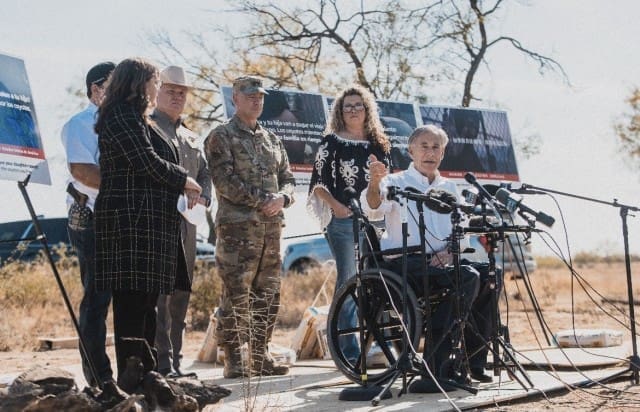The Center for Immigration Studies recently hosted a panel discussion on components of border security that are often overlooked: those carried out by the State Department.
Philip Linderman, a retired State Department senior foreign service officer, explained that most people focus on the role of the Department of Homeland Security and U.S. Immigration and Customs Enforcement when discussing border security yet overlook other border security components that require action from the State Department.
Linderman also explained that several offices under the State Department’s control are involved in developing and implementing immigration policy, including the Bureau of Consular Affairs and the Bureau of Population, Refugees, and Migration.
He said that a new president must install a new secretary of the State Department that aligns with his goals.
“So the new secretary, we would hope, will be seized with these issues, and he will work in the very beginning with a new administration on setting down a national security strategy, or NSS—a document that basically lays out how immigration policy, border protection is fundamental to us, international engagement,” Linderman explained.
“The NSS instructions become the operational elements of the strategic and planning documents inside State Department’s bureaus, which in turn drive decisions about funding and other resources and even become part of individual employees’ work requirements.”
One solution Linderman recommends implementing is limiting the issuance of visas to gain cooperation from foreign nations.
By refusing to issue visas to any country that is helping the mass illegal migration flow to the U.S.-Mexico border or suspending visas to any country that won’t cooperate with the U.S. in the removal of illegal aliens who originated from their country, these countries are incentivized to change their stance and work with the U.S. in order to obtain visas again.
“State typically puts visa processing in all countries–allies, neutrals, and foes–on ‘auto-pilot’ and rarely uses this powerful diplomatic tool to advance the national interest,” Linderman continued.
“The bottom line is that the State Department can and must play a vital role in securing the country’s borders and stopping illegal immigration. If there is a new president on January 20, 2025, concerned about the nation’s ongoing border and immigration calamity, he and his team must retool the State Department to do its part.”
Other panelists agreed with Linderman’s view that the government needs to assist in stopping illegal migration.
“It’s just astounding that the State Department administers these visa programs really without much accountability whatsoever for our quality control or analysis to see whether they’re doing a good job,” explained Jessica Vaughan, director of policy studies at CIS and a panelist in the discussion.
No ads. No paywalls. No government grants. No corporate masters.
Just real news for real Texans.
Support Texas Scorecard to keep it that way!





